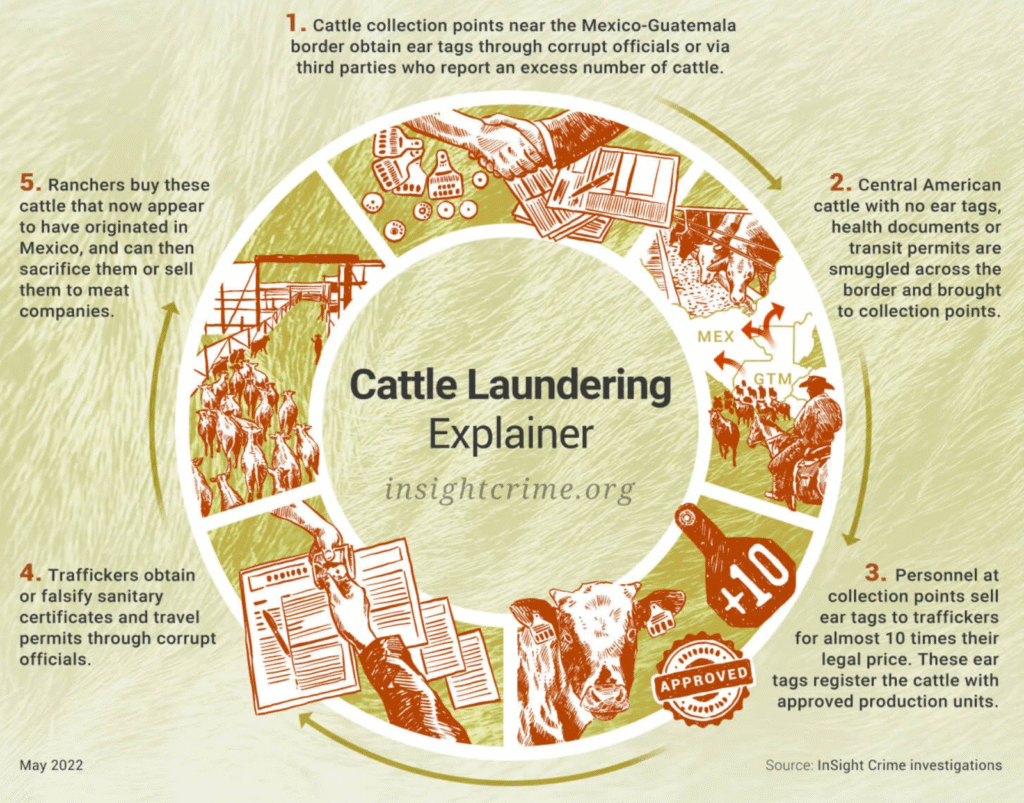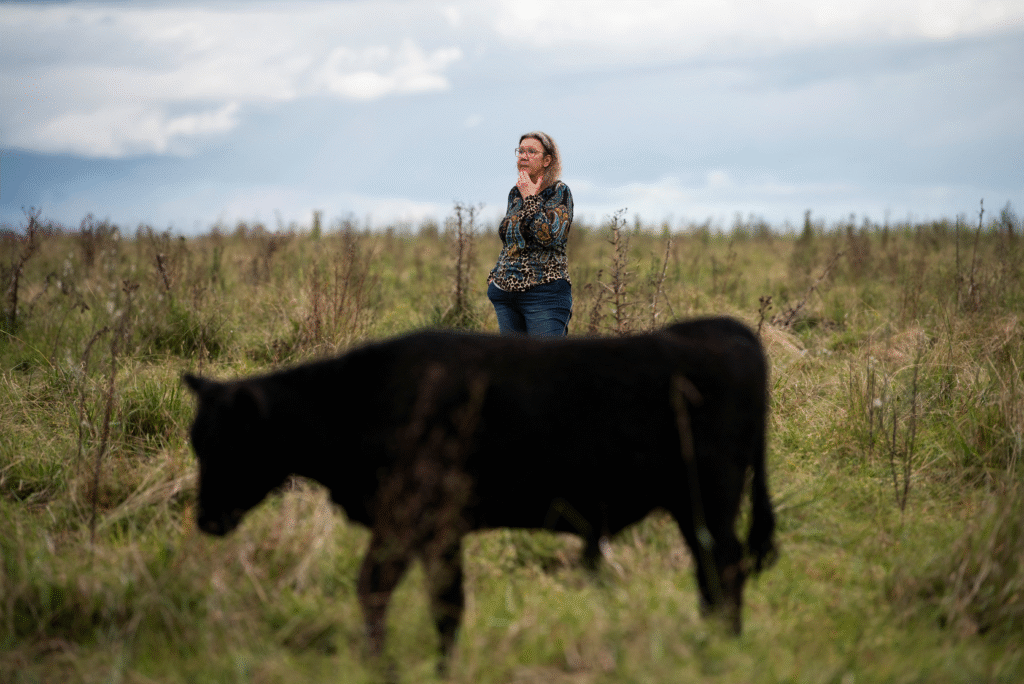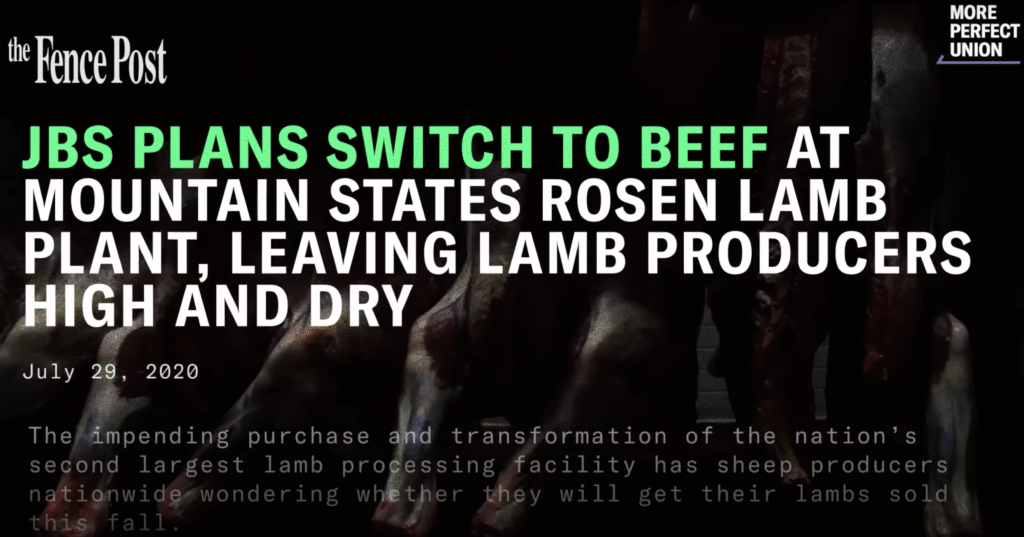The largest meat company in the world isn’t American—and it isn’t clean.
It’s JBS , a Brazilian behemoth with a rap sheet that reads like a corporate RICO indictment: bribery, money laundering, price fixing, deforestation, and cartel-linked cattle laundering.
Now it’s trading on the New York Stock Exchange, fueled by taxpayer contracts, cartel-tainted supply chains, and a government that calls this “competition.”
They Bribed 1,800 Politicians—and Bought Our Food System

In 2017, JBS executives Joesley and Wesley Batista admitted they had bribed over 1,800 politicians in Brazil to obtain sweetheart loans from the national development bank, BNDES.
The loans were used to acquire Swift, Pilgrim’s Pride, and other U.S. meat companies, turning JBS into a dominant player in the American meat market almost overnight.
In total, JBS paid over $3.4 billion in corruption-related fines. But despite the scale of its admitted crimes, JBS has never been banned from doing business with the U.S. government.

From the Amazon to Mexico: Cattle Laundering, Cartel Taxes, and Corruption
According to a 2022 investigation by InSight Crime, the Cártel de Jalisco Nueva Generación (CJNG) imposes a 5-peso-per-kilo tax on cattle destined for the U.S. export market. These cattle are funneled through Mexico’s formal traceability system, often with forged health certificates and corrupt oversight from livestock officials.

JBS operates in Mexico. It is one of the largest meat processors and exporters in the region.
“CJNG had begun charging a 5 peso per kilo fee on cattle exported to the United States.”
— InSight Crime
These cattle—sourced from deforested lands, Indigenous territories, or criminally extorted ranchers—are laundered through government-certified paperwork and processed by plants approved to export to the U.S.
If JBS isn’t directly sourcing from these flows, it would be the first meatpacker to ever resist cartel-aligned convenience.
The RFID Illusion: What Uruguay’s Phantom Cow Scandal Means for the U.S.

In 2025, Uruguay’s celebrated cattle traceability system was shattered by a $350 million fraud. Companies like Conexión Ganadera sold shares in “phantom cows” that didn’t exist, reusing RFID tags and faking inventories.
According to Reuters, Uruguay’s system failed because it relied on processor-reported data and offered no post-slaughter verification. Once the cow was killed, its digital identity became meaningless.
Sound familiar?
The USDA finalized a similar RFID mandate in 2024—but without safeguards to prevent processor manipulation. JBS, as one of the largest recipients of U.S. cattle, will reap the benefits of traceability theater without facing true accountability.
Taxpayer-Funded Felony: USDA Keeps Writing Checks

JBS has received hundreds of millions in USDA contracts, including payments to supply meat to:
- Public schools
- Military bases
- VA hospitals and nursing homes
According to Meat + Poultry, bipartisan lawmakers urged USDA Secretary Tom Vilsack to ban JBS from future contracts following its bribery admissions. He refused—arguing that banning JBS would disrupt the market.
“Removing a firm from government-wide procurement would potentially impair competitive choice for the taxpayer in securing affordable food for the range of needs that government must provide for, from school lunches to meals for our soldiers,”
– USDA Secretary Tom Vilsack
Translation: they’re too big to fail—and too corrupt to stop.
“Out of this very facility, I used to sell to 20 meatpackers. That got down to zero.”
— Mike Callicrate of Ranch Foods Direct
Callicrate’s story isn’t unique. JBS’s rise eliminated market access for independent ranchers, crushed regional processors, and forced consolidation across every segment of U.S. meat production.
ILLEGAL CHILD LABOR: A US CRIME THAT SHOULD HAVE STOPPED IT ALL

In January 2025, the Department of Labor discovered that cleaning contractors in JBS plants employed children as young as 13 to clean grinders and brisket saws during overnight shifts—using caustic chemicals at facilities in Grand Island, Worthington, and Greeley. The company funded a $4 million victim aid package and terminated the contractor—yet was allowed to retain USDA contracts.
Let that sink in: a U.S.-based subsidiary of a foreign corrupt giant was fined for letting minors work overnight in dangerous slaughterhouse conditions, and still feeds your child through the federal school lunch program.
NYSE-Listed, Cartel-Adjacent

After years of delay and political pressure, the SEC greenlit JBS’s IPO in April 2025—just weeks after the company donated $5 million to a Trump-aligned political committee.
The IPO unlocked a flood of cheap American capital—from pension funds to institutional investors—giving JBS the fuel to devour more competitors, entrench its monopoly, and tighten its grip on the U.S. food supply.
Meanwhile, U.S. investors—including public pension funds—are now financially exposed to a company with direct FCPA violations and active supply chain laundering risks.
The Legal Exposure Is Real

Here’s how JBS qualifies as a federal criminal risk under U.S. law:
- FCPA violations: Already admitted to foreign bribery; subject to U.S. enforcement as a NYSE issuer.
- Import fraud: Fraudulent documentation and cattle laundering via Mexico triggers 18 U.S.C. § 542 and § 545.
- Money laundering: Integration of narco-taxed cattle into USDA supply chains violates 18 U.S.C. § 1956.
- Asset forfeiture: USDA contract revenues derived from tainted supply chains are vulnerable under 18 U.S.C. § 981.
Any other company would be under DOJ investigation or SEC freeze orders.
JBS is cashing checks from the government.
They Killed the Competition—Then Took the Plant

Perhaps no story encapsulates the JBS playbook like the 2020 takedown of Mountain States Rosen, a family-owned lamb co-op in Colorado.
According to rancher Carson Jorgensen, JBS refused to transfer utility contracts (steam, wastewater) to new buyers, forcing the plant into bankruptcy. Then they bought it themselves—and converted it to a beef facility.
Sheep ranchers across the western U.S. were left with no processing options.
That’s not free-market competition. It’s corporate assassination.
Delist JBS Now

This isn’t just about beef. It’s about sovereignty, corruption, and the criminal collapse of local control.
We demand:
- Immediate termination of USDA contracts with JBS
- A full DOJ investigation into JBS’s sourcing, IPO financing, and cartel proximity
- SEC suspension of trading pending foreign corruption and import fraud review
- A federal ban on meatpackers sourcing from foreign supply chains tied to organized crime
Because when your food system is built on bribery, laundering, and intimidation—
you don’t have a food system. You have a cartel supply chain.
Want clean, local beef from ranchers you can trust? Find your source at BeefMaps.com—where the only thing getting laundered is the truth.




0 Comments